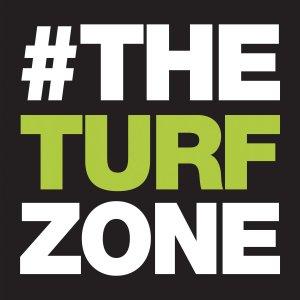The Turf Zone Podcast

Turfgrass Council of North Carolina - Turf Resources in North Carolina, Part 1: NC State’s Turf Diagnostic Lab
In this series, we’re highlighting the resources that help turfgrass professionals work efficiently and respond quickly to the challenges of turf management.
If you have a turf disease problem, and don’t know what it is, this resource is exactly what you need. Accurate diagnosis of a disease is a critical first step in controlling it quickly and economically. The NC State University Turf Diagnostics Lab specializes in rapid and accurate diagnosis of turfgrass diseases and other problems for professionals and property owners.
The NC State Turf Diagnostic Lab is housed within Dr. Jim Kerns’ lab and is managed by Lee Butler in the department of Entomology & Plant Pathology at NC State University. Lee is a well-known and respected diagnostician and has helped countless turfgrass managers in North Carolina and beyond. His work is a tremendous benefit to the turf industry, and one professionals, should recognize and take advantage of when dealing with turf diseases.
To use the services of the lab, you’ll first need to collect and submit a sample.
Sample Submission Guidelines
Sample forms must be filled out online using our database – NCSU Plant Disease and Insect Clinic Database at https://plantclinic.ces.ncsu.edu/.
If you have submitted samples in the past, you should already have an account set up. Your username is your email address. There is an “Oops! I Forgot My Email Address or Password” option at login if needed.
Sample Entry Tips
When entering contact information, keep these designations in mind –
- Client = grower, golf course superintendent, homeowner, field manager, sod farmer, etc.
- Agent = N.C. Cooperative Extension Agents
- Consultant = landscaper, sales/company rep, agronomist consultant, etc.
- Other = anyone else you want to add on the sample that will see the report
Always check our database for your name, your sales rep’s name, etc. before creating another account for yourself or that person. All you need to do is type your/their name or part of your/their name in the entry field and it will auto populate if already in our system.
We require photos with all submissions, and you can upload those with your entry in the database. You can also upload files such as spray records, soil test reports, nematode reports, etc. We will not process your samples until we have photos. This allows us to understand exactly what the symptoms are and increase our accuracy during the diagnostic process.
Photos from standing height looking out across the turf are ideal. Up close photos or those looking straight down at the ground typically aren’t useful unless they clearly show something unique. Alternatively, you can email images directly to me at elbutler@ncsu.edu if needed. Keep image file size below 3MB each and send individually to be certain they make their way through.
Samples should be completely wrapped in aluminum foil, double ziploc bagged (out-of-state only), and shipped overnight to the following address:
NC State Turf Diagnostics Lab
Attn: Lee Butler
1575 Varsity Drive
Module 6
Raleigh, NC 27606
(919) 513-3878
Shipping Guidelines
If possible, avoid using the United States Postal Service. Our clients have had too many issues with timely deliveries. FedEx, UPS, etc. have all done fine delivering on time.
Tracking numbers are useful to our lab when planning/coordinating our time in the lab. Please do not request a signature upon delivery as for this will likely result in delays. Tracking numbers should be emailed to Lee Butler at elbutler@ncsu.edu
If you would like to drop-off samples in person, please coordinate your drop with Lee Butler via email (elbutler@ncsu.edu).
Final Checklist
Have you…
- Entered information online?
- Uploaded photos?
(Failure to complete both items above will result in delayed service)
Please take the time to fill in as much information as possible to help ensure an accurate diagnosis. A video guide is available on our website for proper sample collection, however be sure you collect your samples along the margin of damage. Ideal samples are 50% damaged and 50% healthy and no deeper than the root system. Shake off excess soil to reduce shipping costs.
Fees are applied per problem. Please send at least 2, but no more than 4, samples per problem. If you would like to send multiple problems, then you will need to enter them separately in the database. If you are unsure, please contact us for assistance.
Please note that we do not process nematode samples. We suggest you submit those to the N.C. Department of Agriculture and Consumer Services Nematology Lab – NCDA Nematode Lab.
For turfgrass weed identification and control recommendations, please contact our extension turfgrass weed management specialist, Dr. Fred Yelverton.
Digital Image Submissions
We accept digital images along with physical samples. Pictures of the symptoms taken from a distance are very helpful and help to ensure an accurate diagnosis. You may submit images without physical samples, however in most cases we will need a physical sample to diagnose the problem with 100% confidence.
Please follow these instructions for image submission:
- From standing height, take images that illustrate the overall damage.
- In general, close-up images are not helpful unless you are clearly attempting to show a lesion, fruiting body, or other structure.
- Email images to elbutler@ncsu.edu. We may use your images for educational purposes, however we will never reveal the sender’s information.
Payment
We prefer payment be made by VISA or MasterCard, however we do accept cash, check, or money order. Checks should be made out to NC State University.
For more information, visit: https://turfpathology.ces.ncsu.edu/diagnostic-lab/
The post Turfgrass Council of North Carolina – Turf Resources in North Carolina, Part 1: NC State’s Turf Diagnostic Lab appeared first on The Turf Zone.






 Visit Podcast Website
Visit Podcast Website RSS Podcast Feed
RSS Podcast Feed Subscribe
Subscribe
 Add to MyCast
Add to MyCast